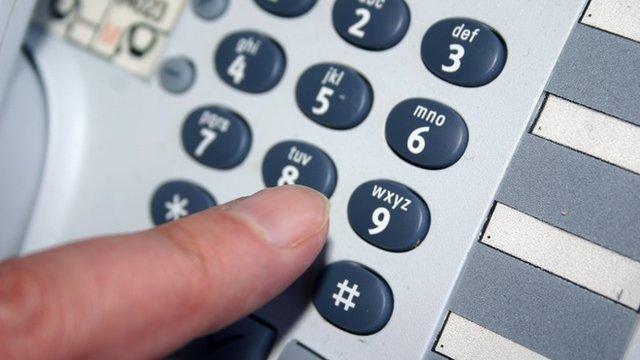Wales 111 phone line aims for full roll-out by 2021
- Published
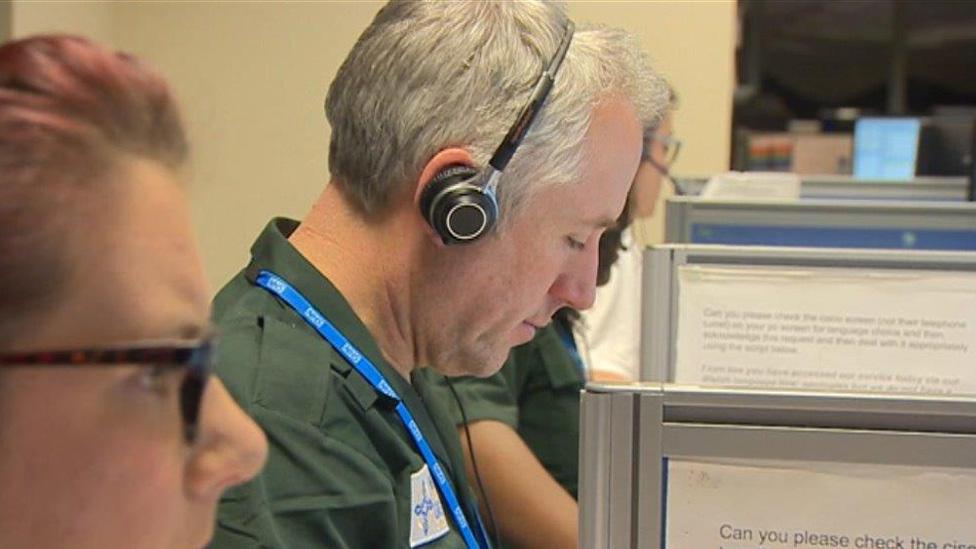
This centre can have up to 50 staff working at weekends
A single telephone number - aimed at giving patients easier access to the NHS - will be available across Wales in around three years time.
The 111 service has been trialled in Swansea, Bridgend and Carmarthenshire with claims of "phenomenal" feedback.
An independent review says demand at hospital emergency units has fallen and more ambulances have been freed up.
But there has been a warning that 111 is not a "golden bullet" to solve NHS pressures.
The system is still not perfect, facing recruitment issues and bosses want to ensure out-of-hours services are "robust" with the IT systems running smoothly before they are rolled out completely.
The service started 18 months ago in Bridgend, Swansea, Neath and Port Talbot - the Abertawe Bro Morgannwg (ABM) health board area.
The 111 service combines the NHS Direct Wales advice line for non-999 health calls with the out-of-hours GP service.
GPs, pharmacists and nurses are on hand alongside call-handlers and can arrange appointments, prescriptions, advice and home visits.
It was rolled out to Carmarthenshire in May 2017 and there are hopes it will be available in Pembrokeshire and Ceredigion by May.
The aim is to extend into Powys, south east Wales and eventually north Wales.
"We'll only put the service in when we know it's clinically safe and competent to do so," said Richard Bowen, programme director for 111. "We won't rush to just hit a deadline. When we know we have the right support, we'll do it."
He said an easy-to-understand service with a free and simple number could end confusion for patients.
There is a particularly high take-up in the 25 to 34 age group, with nearly a quarter of calls about children under four.
Lessons were learned from England and Scotland but Wales has put more emphasis on its clinical professionals at the call hubs.
Mr Bowen said all branches of the NHS had got behind it, including the Welsh Ambulance Service.
But there were still some lessons to learn about dealing with huge surges in demand - the service received between 100 to 150 calls an hour ahead of the Christmas holidays.
So far the pilot has meant:
A "significant" reduction - 29% - in "green" ambulance call-outs, which frees up more ambulances for more urgent calls. This fell to just over 3,000 in a six-month period from nearly 4,400 the year before.
The new service has not led to a big increase in demand compared to the old system.
There has been a 1% decrease in visits to hospital emergency departments, against the trend elsewhere.
95% using 111 have been satisfied or very satisfied with the service.

CASE STUDY: 'It saved Junior's life'
Junior Hughes was found to have septic arthritis - a condition which could have proved very serious.
Junior Hughes, just short of his first birthday, was in severe pain.
His father Scott, from Port Talbot, said: "When I was changing him, as soon as I grabbed his leg he screamed. It was an agonising scream, nothing normal - so it was a case of 'Oh, something's not right here'.
"That cry was like nothing I'd heard before so that made us phone."
He and his partner Helen called 111 at 11:00. A GP called back within 10 minutes with an appointment and by 12:30, Junior was at Morriston Hospital in Swansea having tests.
Junior had a very bad infection in his leg, septic arthritis and originally was suspected of having sepsis. He needed an operation to remove fluid and spent his first birthday and more than three weeks in hospital.
Helen said: "It saved Junior's life. I phoned 111 just for advice really. Because he didn't have typical symptoms I thought maybe I was wasting time. But they saw him straight away and saved his life. If it wasn't for them acting as fast as they could, a couple of hours later if could have been a lot worse."

Richard Bowen, programme director for Wales 111, said it was about simplifying the system for patients
Weekends and bank holidays are the peak periods for the service - including 1,800 calls on the busiest day over the Christmas holiday period.
Dr Stephen Bassett, clinical director of ABM's out-of-hours service, said with the volume of calls, it needed to be a sophisticated process but developing technology and remote consultations were providing more "good and safe" solutions.
"We often assume doing something over the telephone is worse than seeing someone face to face, but I'm not always sure that's the case and actually convenience is an important part of what we offer," he said.
- Published7 December 2017
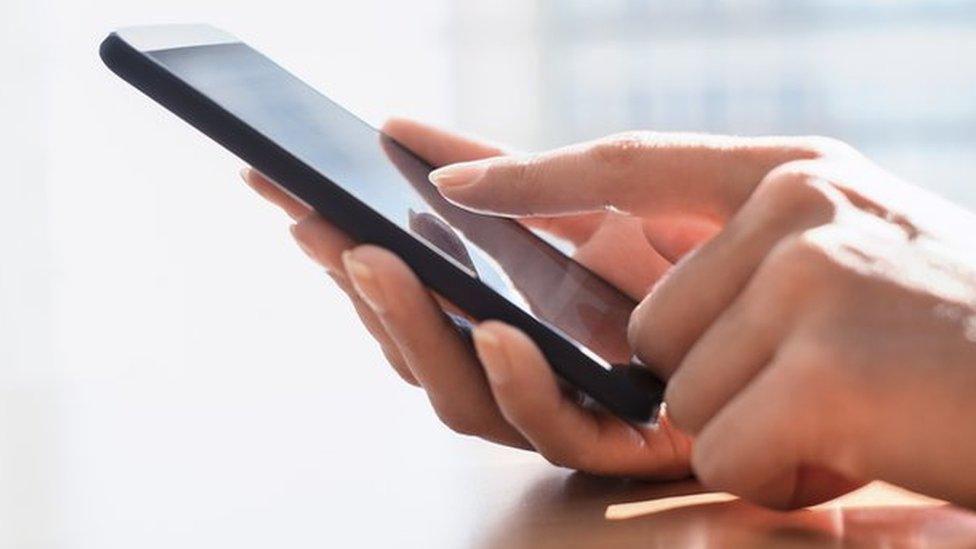
- Published5 January 2018
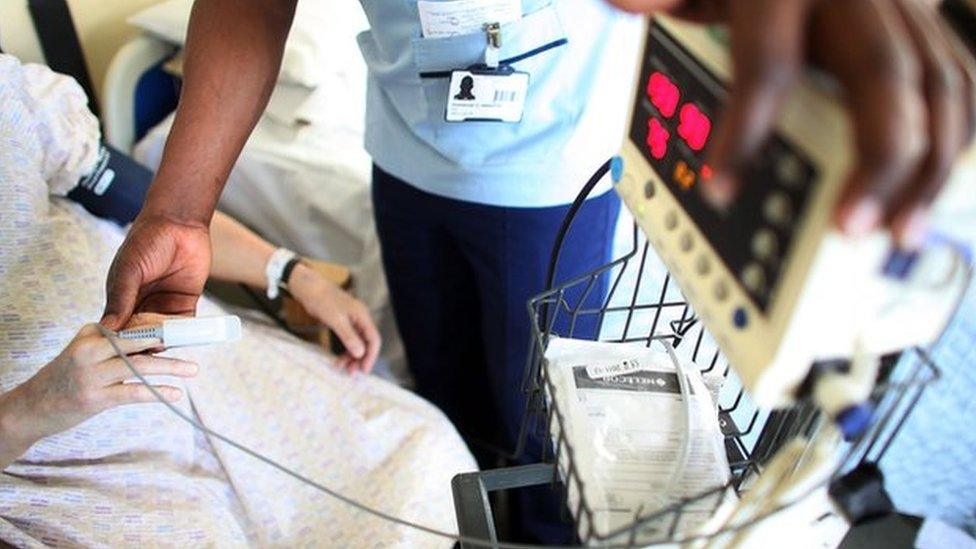
- Published10 January 2018
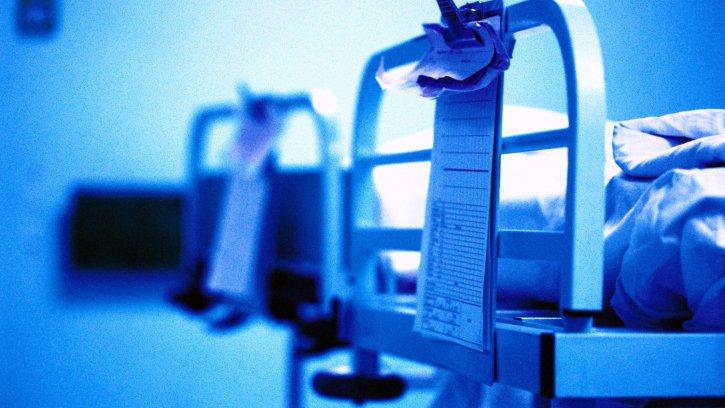
- Published4 January 2018
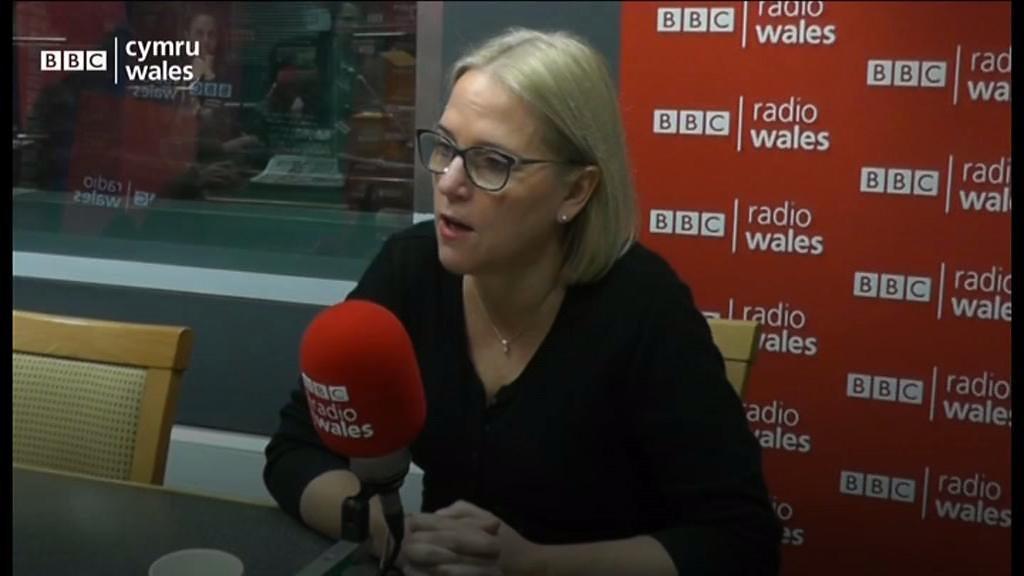
- Published4 January 2018
- Published28 May 2013
